The Heavy Crown of Marriage Pressure: Exploring Desperation in Lagos
“My Own Man,” directed by the visionary team behind this Nollywood gem, arrives squarely on the topic that dominates every WhatsApp chat and family gathering in Nigeria: the societal pressure cooker of marriage. This movie is a mirror reflecting the relentless, suffocating expectation placed on single, successful women once they hit the dreaded “30-something” mark. The protagonist, Udoara (Lilian Afegbai), embodies this internal crisis perfectly—she’s smart, she’s ambitious, but her desperation for a ring outweighs her good sense, turning her into a walking Red Flag magnet.
The film excels in its initial setup, masterfully exploiting the social nuances that drive Udoara’s frantic search. From the opening montage of failed attempts to the passive-aggressive comments from her mother, the narrative establishes a visceral understanding of the pressure. However, the critical question the engineered prompt forces us to address is whether the film explores or exploits this desperation.
While the film attempts a deep dive into the emotional toll, there are moments, especially in the more farcical date scenes, where Udoara’s predicament feels less like social commentary and more like comedic ammunition. The script occasionally leans too heavily on the “desperate spinster” trope, sacrificing genuine emotional depth for easily digestible laughs. Yet, Udoara’s journey remains grounded by Afegbai’s nuanced performance, which grounds the character’s frantic actions in genuine fear—the fear of being left behind. Ultimately, “My Own Man” does more exploring than exploiting, holding up a lens to a societal ill while simultaneously offering a whirlwind romance.
Udoara and Paul: A Toxic Roommate Dynamic
The heart of “My Own Man,” and perhaps its greatest narrative strength, is the intensely charged relationship between Udoara and her housemate, Paul (Nosa Rex). The film doesn’t hide its intentions; this is a classic enemies-to-lovers story built on constant, witty antagonism.
Paul is the quintessential, annoying, yet deeply insightful best friend archetype. He’s loud, messy, and brutally honest about Udoara’s string of dating disasters. Nosa Rex delivers Paul with a compelling mix of charm and condescension. He’s the audience surrogate, constantly delivering the line we’re all thinking: “Why are you doing this to yourself?”
The dynamic successfully transforms from antagonistic housemates to genuine confidantes through several key, well-written scenes. The slow-burn evolution is primarily tracked through Paul’s sudden shift from mocking Udoara’s failed dates to offering surprisingly supportive, even protective, advice. Their chemistry is electric, built on mutual respect hiding under layers of sarcastic jabs.
However, a close reading, guided by the prompt’s call for analysis on Gaslighting, reveals a potentially problematic layer to Paul’s character. While he is positioned as the eventual “good guy,” his constant stream of negativity regarding Udoara’s choices, even when justified, borders on emotional control. He dictates who she should and shouldn’t date, often using insults to mask his genuine care. This dynamic, while compelling on screen, asks the viewer to accept a degree of emotional manipulation as tough love, a recurring, slightly worrying trope in Nollywood romances.
The relationship eventually works because it’s founded on shared domesticity and unfiltered reality, not the performative perfection Udoara seeks elsewhere. Their shift from antagonists to a safe space for each other felt, for the most part, earned.
David’s Deception: The Masterclass in Red Flags
No romantic comedy is complete without a compelling antagonist, and David (Kachi Nnochri) fills that role perfectly as Udoara’s seemingly ideal match—the man who appears to solve all her problems. David is the physical manifestation of a Red Flag wrapped in a bespoke suit. He is too smooth, too perfect, and arrives too conveniently at the moment of Udoara’s highest Desperation.
Kachi Nnochri plays David with impeccable subtlety. He’s charismatic, articulate, and ticks all the boxes Udoara and society have set for the perfect husband: successful, presentable, and ready to commit. The audience, of course, recognizes the Scam/Yahoo Boy Trope immediately, but Udoara, blinded by the perceived finish line of marriage, overlooks the clear signs: the overly extravagant gifts, the vague business dealings, and the general air of elusive charm.
The genius of this subplot lies in how the film uses the David character to expose the true cost of Udoara’s desperation. She is so focused on the appearance of marriage that she willfully ignores her intuition, falling prey to a deception that nearly costs her everything. The David arc isn’t just a plot device; it’s a necessary catalyst that forces Udoara to redefine her criteria for a partner, shifting the narrative focus from external validation to self-preservation. This subplot lands with maximum impact, delivering the necessary drama and raising the stakes considerably as the third act approaches.
The Disastrous Dates: Comedy Relief or Time Filler?
One of the most memorable and highly structured sequences in the film involves Udoara’s series of three blind dates. These dates serve as episodic vignettes designed to showcase the chaotic, often ridiculous reality of dating in Lagos, and they are ripe for individual Critique of Subplots.
The Food Terminator Date: This date, featuring a man obsessed with food and completely oblivious to his companion, functions as pure comedic relief. While hilarious and physically expressive, it felt like classic filler. Its primary purpose was to provide Paul with fresh material for his mockery, rather than advancing Udoara’s Character Arc or plot.
The Married Man Date: This is the most crucial of the three. It’s the emotional low point where Udoara realizes the man she’s seeing is already taken, reinforcing the theme that desperation leads to compromise. This subplot is absolutely necessary for narrative development, as it pushes Udoara closer to her breaking point, making the transition to the David character—the one who promises commitment—more understandable.
The Eccentric Chief Date: The final disaster, involving a significantly older, slightly eccentric Chief who approaches the date with a transaction mindset, is a return to farcical comedy. Like the Food Terminator, it serves mostly as a humorous distraction. While funny, it further emphasizes the point that Udoara is searching in the wrong places, but its placement could have been streamlined to improve the overall Pacing.
In conclusion, the dates were a mixed bag: the Married Man segment was essential and thematic, while the other two, though entertaining, occasionally felt like filler designed to hit a feature-length runtime rather than drive the main plot.
The Unearned Twist: Did Udoara Truly Choose Her Own Man?
The Climax & Resolution of “My Own Man” is where the film’s polished facade begins to crack under critical scrutiny. The climax—the confrontation where David is exposed as a fraud—is gripping. It’s a moment of devastating clarity for Udoara, finally forced to face the consequences of her denial.
However, the subsequent romantic resolution with Paul is the most critically contested point. It happens immediately after Udoara’s lowest point. Paul steps in, not just as a rescuer from the scam, but as the sudden, designated romantic hero.
Was the final romantic twist earned? Yes and no. The chemistry was there, the shared history was present, and Paul’s underlying care was established. But the timing felt sudden and perhaps contrived. The film had spent 80% of its runtime establishing a platonic, albeit argumentative, bond and only 20% developing it into overt romantic interest. The immediate pivot from “I’ve been scammed and lost everything” to “I now realize I love my roommate” feels rushed, robbing Udoara of a much-needed period of self-reflection.
Furthermore, the ending dangerously contradicts the film’s earlier message about patience and self-worth. The entire setup implied that Udoara needed to find her own stability before finding a partner—to genuinely choose “her own man” by choosing herself. Instead, she merely defaults to the available man who happened to be next door, suggesting that the journey ended only when the right partner was revealed, not when the heroine achieved emotional independence. It’s a conventional ending that slightly undercuts the brave, feminist messaging the film had been setting up.
Polishing the Nollywood Gem: Technical Review
On a technical and production level, “My Own Man” is a testament to the continually improving quality of modern Nollywood cinema. The Cinematography is bright, clean, and professional, utilizing the vibrant backdrops of Lagos without the heavy, saturated feel of older productions. The camera work is steady and thoughtful, particularly during the intimate conversations between Udoara and Paul, where close-ups effectively capture their shifting emotional states.
The Editing and Pacing are generally tight, especially in the first two acts. The film moves quickly through Udoara’s series of dating failures, maintaining a brisk, comedic tempo. The only noticeable drag comes during the setup of the David scam, where the audience is often ahead of the protagonist, leading to moments where the suspense falls flat due to slow reveals.
The Sound Design and scoring are functional, though they suffer from the recurring Nollywood Trope of overly dramatic, predictive music cues. Every moment of mild emotional intensity is accompanied by an unnecessarily loud swell of music, which, at times, detracts from the subtle dramatic performances rather than enhancing them. A more restrained, nuanced score would have elevated the film significantly. Despite these minor technical flaws, the film’s production value is consistently high, proving that Nollywood is operating at a globally competitive level.
Overall Verdict and Call-to-Watch
“My Own Man” is a highly entertaining, well-acted, and socially relevant romantic comedy that manages to capture the zeitgeist of modern Nigerian dating life. Lilian Afegbai delivers a relatable performance that anchors the emotional turbulence, while Nosa Rex provides the necessary charm and banter to make the central relationship believable.
While the film deserves praise for tackling the tough theme of Societal Pressure head-on, its final act—the rushed pivot to Paul—feels like a surrender to romantic comedy conventions. It prioritizes the happy couple over the heroine’s completed journey of self-discovery. However, the film is sharp, funny, and offers valuable social commentary hidden within a delightful love story.
Final Verdict: Recommended
If you’re looking for a film that balances sharp social commentary with laugh-out-loud comedy and sizzling chemistry, “My Own Man” is essential viewing. It’s a highly polished piece of modern Nigerian cinema.
Rating: …………………4 out of 5 Stars
Justification: The film earns high marks for its stellar lead performances, electric central chemistry, and the effectiveness of the David scam plot. It loses a star only for the predictable and slightly rushed resolution that compromises the deeper theme of self-worth.
Call-to-Watch: Go watch “My Own Man” now, and then come back and tell me: Was Paul a genuine hero, or just the best of a bad lot? The discussion is waiting!
#NollywoodTimes
#NollywoodPressure
#UdoaraAndPaul
#MyOwnManReview
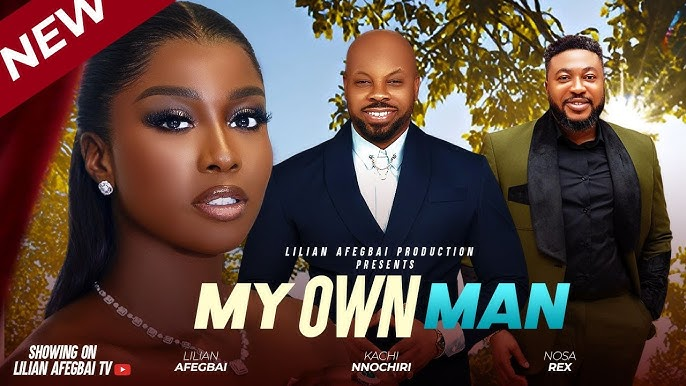
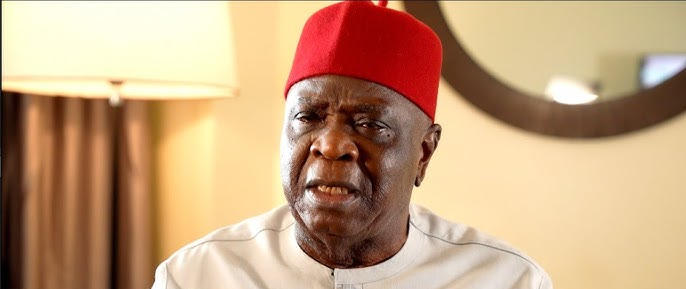
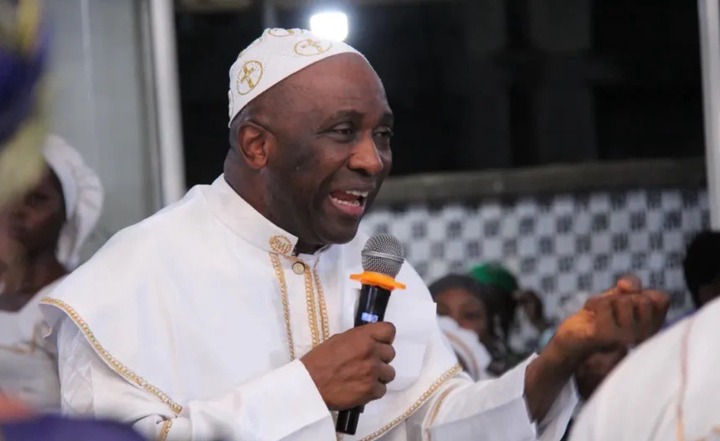
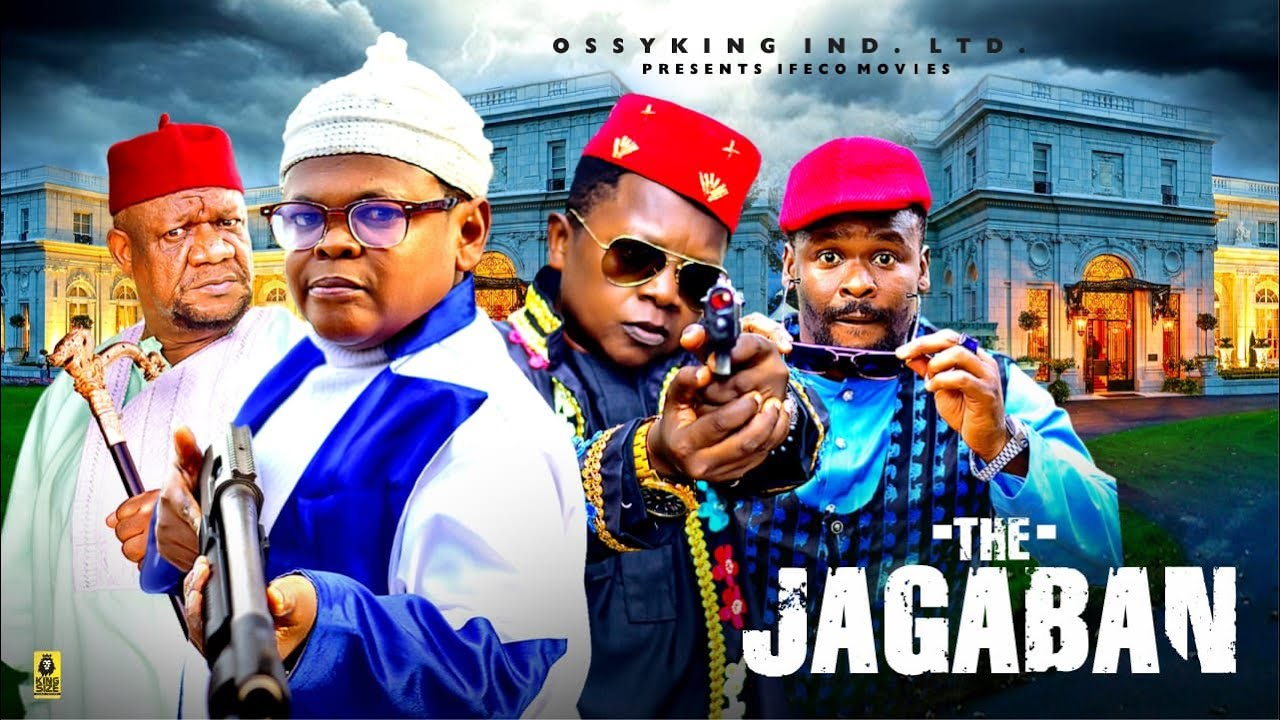

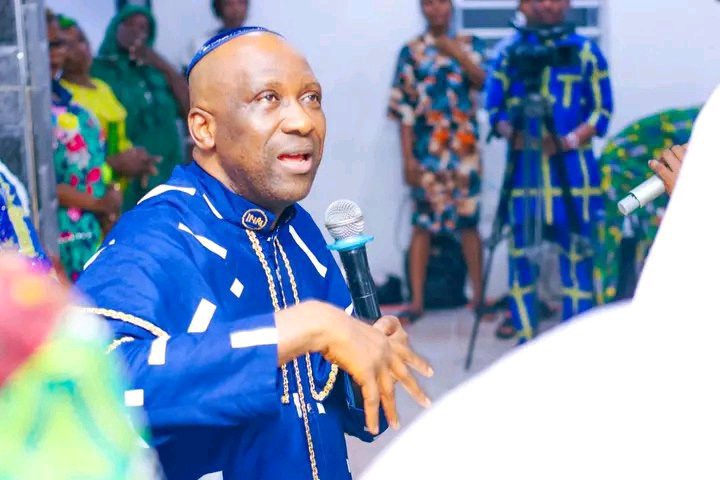

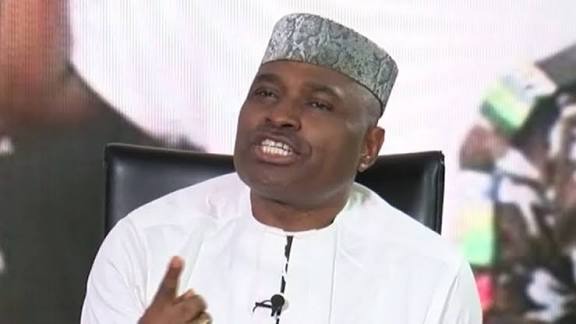
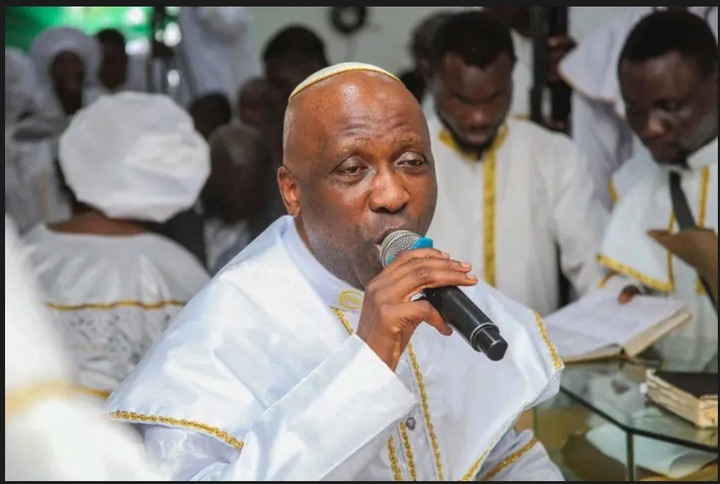
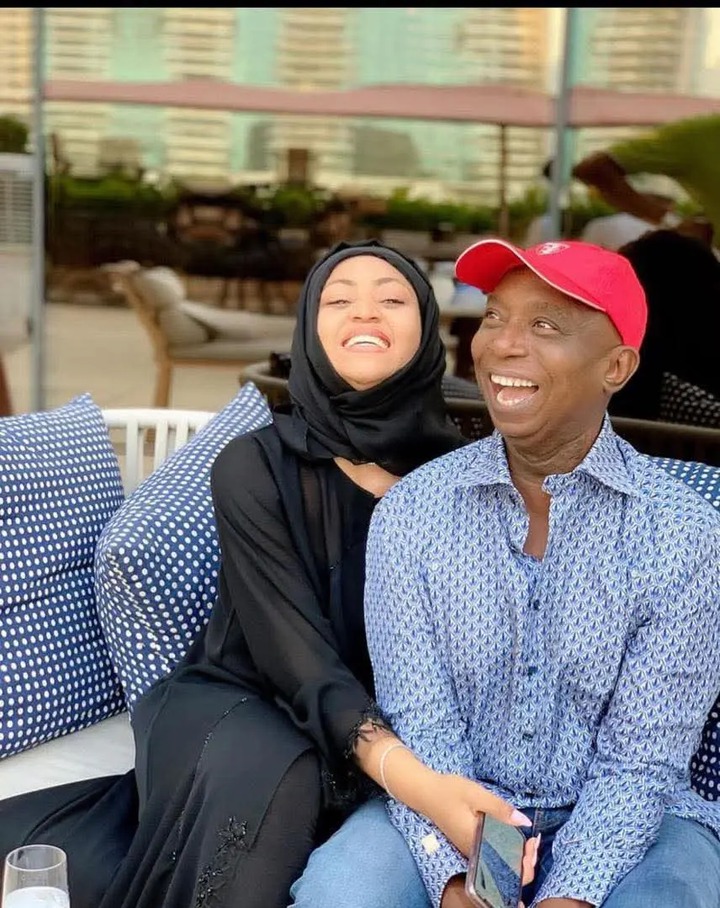




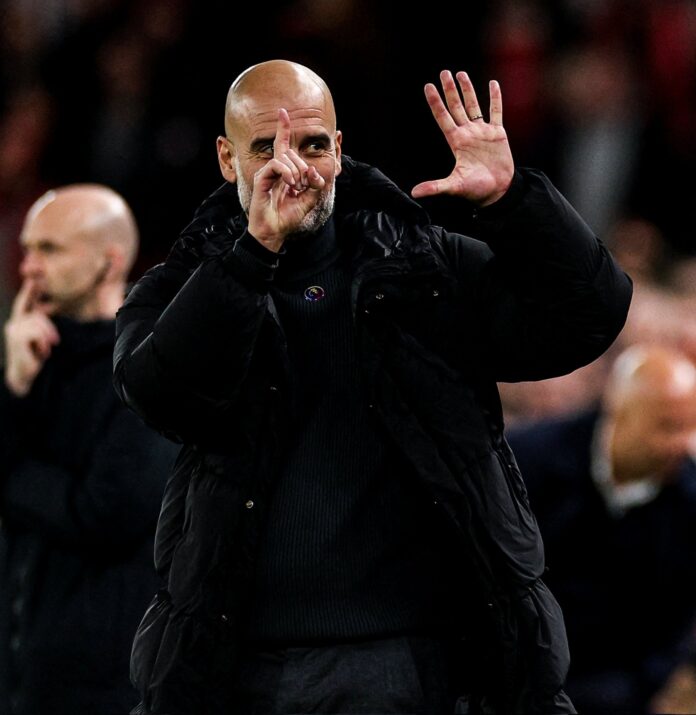
Leave a Reply